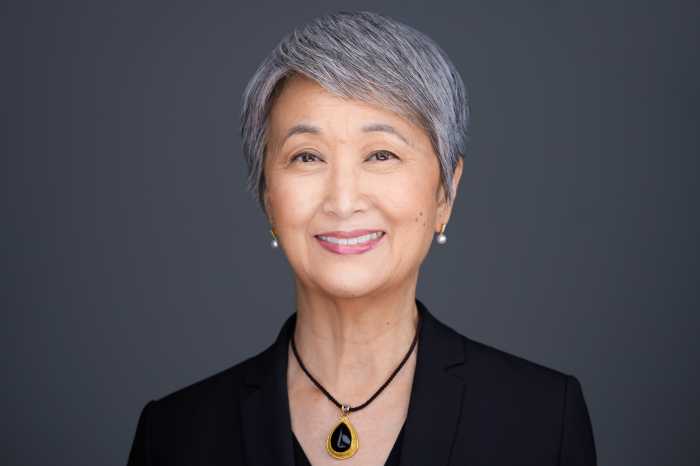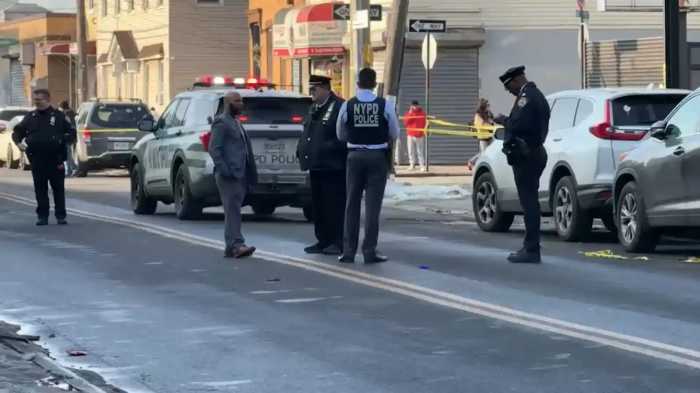Pat Wang joined Healthfirst in 2008 as president and CEO. During her tenure, Healthfirst has become one of the largest not-for-profit health insurance providers in the country. Today, the company serves close to 2 million New Yorkers and is distinguished by its genuine community presence and commitment to quality and health equity. Pat is a graduate of Princeton University and New York University School of Law, cum laude.
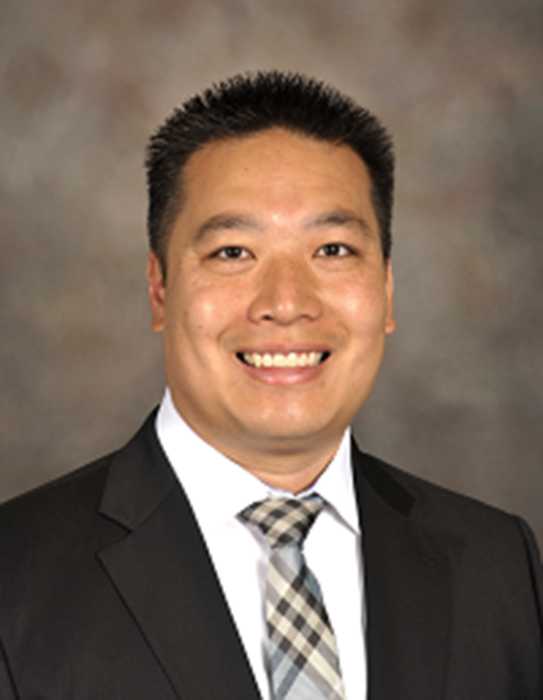
Eric Wei
Senior Vice President and Chief Quality Officer, NYC Health + Hospitals

Dr. Eric Wei serves as senior vice president and chief quality officer for NYC Health + Hospitals and is the fellowship director for the NYC Health + Hospitals Clinical Leadership Fellowship. Dr. Wei is a practicing emergency medicine physician who has rotated through all eleven Emergency Departments in the system. He serves on the board of MetroPlusHealth and as faculty for the Greater New York Hospital Association/United Hospital Fund Clinical Quality Fellowship Program.
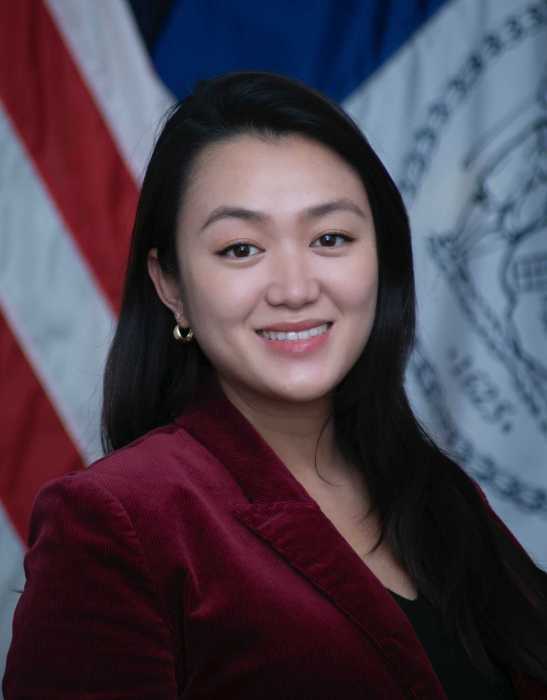
Julie Won
Council Member, New York City Council

Julie Won represents the 26th Council District in Western Queens covering the neighborhoods of Long Island City, Sunnyside, Astoria, and Woodside. She is the first woman and immigrant to represent this district in the city’s history. As a tenant and activist, Julie has committed to a new vision for her community with a deep focus on creating and preserving affordable housing, increasing access to city resources for all New Yorkers, ensuring that access to quality and affordable internet is guaranteed, and many other issues that are top of mind for her constituents. At the age of eight, Julie immigrated to New York City with her family looking for a new beginning, an experience she shares with over half of the constituency she represents.
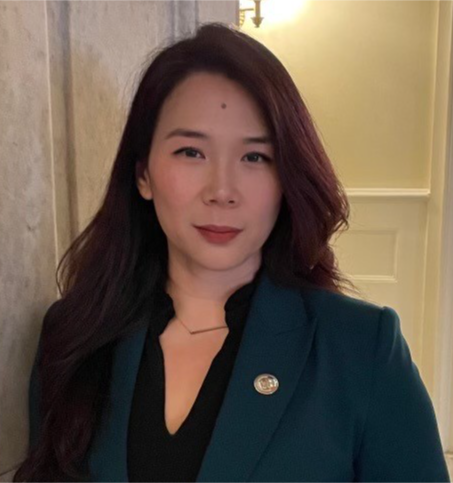
Eva Wong
Executive Director, Mayor's Office of Mental Health

Eva Wong is a compassionate leader committed to improving equitable access to behavioral health resources. As executive director of the mayor’s office of community mental health, Eva is spearheading the City’s efforts to tackle NYC’s behavioral health workforce crisis and pioneering system-level solutions to promote mental health. By forging strategic connections between government, community and academia, Eva believes we can build a stronger and more equitable behavioral healthcare system, and a healthier and resilient city.
If you could give your younger-self advice, what would it be?
To my younger self and to my little ones, life is unpredictable and will lead you down unexpected paths. Focus on what you can control: your values, attention, and responses. Embrace challenges as opportunities for growth. Surround yourself with supportive, authentic people who speak truth, even when it’s difficult. Be kind and courageous, stay true to your values, and protect your boundaries. Trust yourself to overcome obstacles; your character is forged through these experiences.
Do you have any event/movie/music suggestions for our readers to check out in celebration of AAPI Heritage Month?
I enjoyed “My Heavenly City” by NY-based filmmaker Sen-I Yu, which portrayed stories of AAPI immigrants in NYC finding hope and healing. I recommend the music of Keung To and his group, Mirror, from Hong Kong, representing exploration of identity, mental health, and social issues. To’s performances are captivating, conveying messages of resilience and understanding. Mirror’s music has offered a path for many to reconnect with their roots in a city that celebrates diversity.
How has your heritage shaped the person you are today?
As a 1.5-generation immigrant from Hong Kong, I was shaped by a blend of HK heritage, Chinese traditional values, and Canadian/American cultures. While my cultural identity was solidified in Hong Kong, I empathize with the challenges AAPI youths face in NYC, including dual cultures, language barriers, racism, and AAPI invisibility. In my role in Mayor Adam’s administration, I advocate for marginalized communities, drawing from my immigrant background and values of community, compassion, and service.
What can New York policymakers do to support the AAPI-community in the short-term? In the long-term?
To support the AAPI communities in New York, policymakers can focus on improving the accessibility and availability of quality, culturally responsive mental health resources. For instance, my office, OCMH, collaborates with City agencies to reduce barriers to behavioral healthcare through policy development, public education, and behavioral health workforce development. It’s important to strengthen capacities of community-based networks, tackle stigma, integrate mental and physical health, promote wellness, and streamline crisis responses to address mental health disparities.
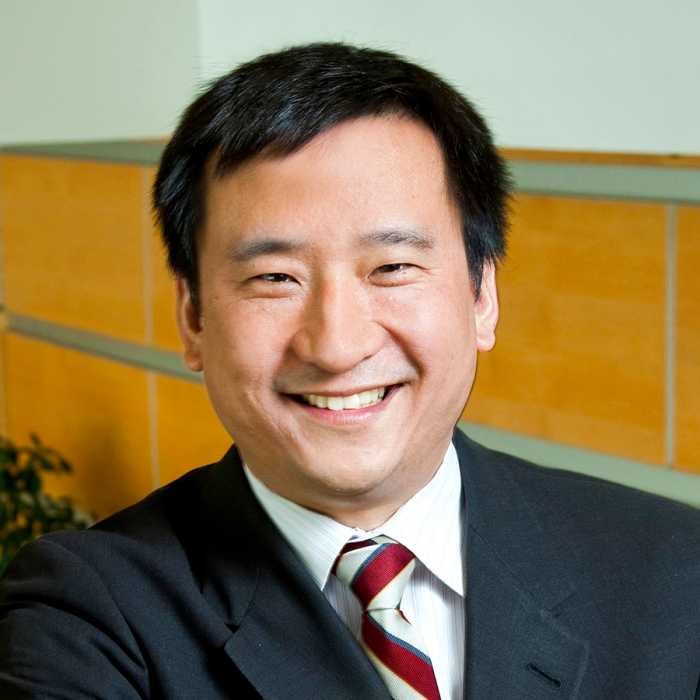
Frank Wu
President, Queens College, CUNY

Frank H. Wu is the president of Queens College. The American born son of immigrants, he served as a law professor at Howard University, the nation’s leading historically Black college/university; dean of the law school of Wayne State University in his hometown of Detroit, and chancellor and dean of University of California Law School San Francisco – the first Asian American in those roles. He wrote “Yellow: Race in America Beyond Black and White.”
If you could give your younger-self advice, what would it be?
Stand up and speak out. Respect your parents and the sacrifices they made to ensure your success. Recognize that their strategies worked for a different generation and another era. Asian cultures instill a sense of “the nail that sticks up is pounded down,” which is about conformity, deference, tradition, and not making a fuss. The American adage is “the squeaky wheel gets the grease,” and that is what a diverse democracy is about: participation.
Do you have any event/movie/music suggestions for our readers to check out in celebration of AAPI Heritage Month?
Asian American cultural contributions are finally being celebrated. That includes not only the traditions of Asia, but also the dynamic developments made possible by America. Try the wonderful cuisine of Queens, the world’s borough, which includes every mixture imaginable, even those that would surprise Asian cousins. Or the Isamu Noguchi Museum in Long Island City, dedicated to an artist who was unique; or the Museum of Chinese in the Americas, designed by Maya Lin.
How has your heritage shaped the person you are today?
I know I owe everything to my family. The American dream beckoned with freedom and opportunity for my parents, as it continues to attract newcomers even today. They valued education most of all. That was how they were able to come to these shores, as scholarship students, and they were confident it would provide for the next generation as well. The emphasis on learning, over a lifetime, continues to guide everything I do.
What can New York policymakers do to support the AAPI-community in the short-term? In the long-term?
New York policymakers can recognize race is not literally, nor figuratively, black and white. There are many communities and individuals with needs who are deserving. Asian Americans are not a model minority, monolithic and privileged; they suffer like others, as the pandemic showed, and they face the stereotype they have no problems. They are not perpetual foreigners, whose hearts belong elsewhere: they include sixth generation New Yorkers whose ancestors founded neighborhoods that thrive today.
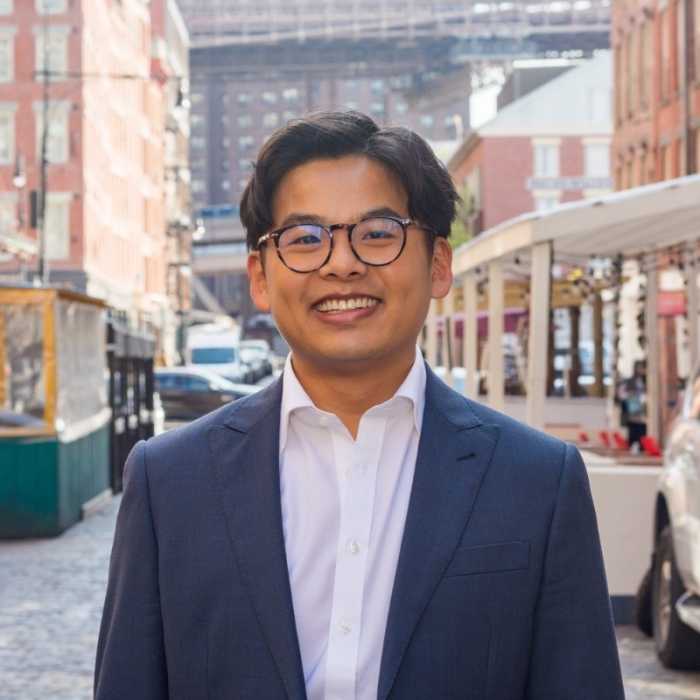
Jason Wu
Attorney-in-Charge, The Legal Aid Society

Jason Wu is the attorney in charge of The Legal Aid Society’s Harlem Community Law Office. He is co-chair of GAPIMNY, empowering Queer and Trans Asian Pacific Islanders, and also serves on Manhattan Community Board 11, and the board of directors of CAAAV: Organizing Asian Communities. Their writing and political commentary focuses on race and inequality, cross-racial solidarity, and intersectional social movements.
If you could give your younger-self advice, what would it be?
I would share this quote from Grace Lee Boggs, “You don’t choose the times you live in, but you do choose who you are to be.”
Do you have any event/movie/music suggestions for our readers to check out in celebration of AAPI Heritage Month?
Learn about unsung heroes and Asian American movement figures like Kiyoshi Kuromiya. The publication “Them” created a short video on his life, using his actual voice to narrate, that’s worth checking out. He was born in a Japanese concentration camp during WWII and was active in the civil rights and anti-war movement, and made significant contributions to HIV/AIDS activism. https://www.them.us/video/watch/kiyoshi-kuromiya
How has your heritage shaped the person you are today?
My heritage has enabled me to better understand the world, and to connect my lived experiences to those of past generations. Heritage is not just about language or food, as wonderful as they are, but also about my political identity. Our collective histories of struggle and resistance give us strength to fight for collective liberation, and it means that we build on those who came before us and we never do this work alone.
What can New York policymakers do to support the AAPI-community in the short-term? In the long-term?
Our policymakers have to engage in principled struggle to combat inequality and stop the political cowardice of selling out the most vulnerable, because ultimately none of us are free until all of us are. Until we address the root causes of violence in our society, we are doomed to repeat these cycles of violence. We must redistribute resources away from systems, like prisons and war, that kill and destroy and towards those that affirm life.
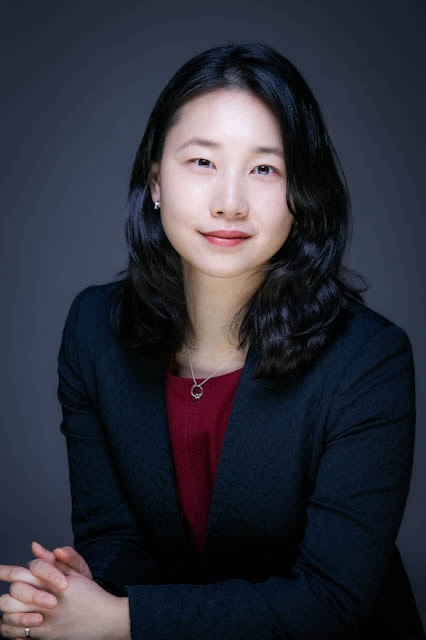
Tian Wu
President, National Association of Asian American Professionals, New York Chapter

Tian Wu has devoted herself to community building and community development. She is the president of the National Association of Asian American Professionals, NY Chapter (NAAAP NY), a nonprofit organization that cultivates and empowers AAPI leaders through professional development, community service, and networking. Tian is also the Head of Debt Capital Markets at Momentus Securities, a mission-driven broker dealer that aims to channel more institutional capital into the community development space.
If you could give your younger-self advice, what would it be?
Be humble, but confident.
Do you have any event/movie/music suggestions for our readers to check out in celebration of AAPI Heritage Month?
“Fighting Back”, a documentary by NAAAP NY’s very own director of WIN (Women in NAAAP), Xiaoying Echo Su, focusing on the efforts of New Yorker Jessica Ng, an internationally renowned Muay Thai fighter using her talents to teach and empower our AAPI community amidst alarming increases in anti-Asian hate crimes in recent years.
How has your heritage shaped the person you are today?
I see myself as a citizen of the world. The multicultural background is a very important piece of my identity. I’m very proud of being able to adapt to different cultures and establish my life here as a first generation immigrant. I’ve developed the ability to think about events from multiple angles and understand opinions from different people. The adaptability and empathy have carried me far in my professional and personal lives.
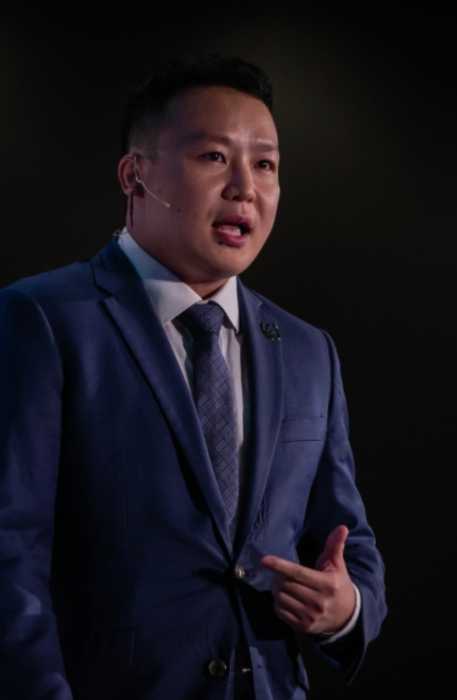
Trip Yang
Founder and President, Trip Yang Strategies

Trip Yang is a Democratic political strategist and founder of Trip Yang Strategies, a top political strategy and paid media consulting firm which has elected dozens of Democratic candidates to office. Earlier this year, Trip’s firm led an AAPI independent expenditure that successfully targeted and communicated to tens of thousands of AAPI voters in support of Tom Suozzi’s congressional win. Before he started his own firm, Trip spearheaded NYC Public Advocate Jumaane Williams’ landslide win as the campaign manager in an unprecedented 17 candidate field for NYC’s second highest office. Trip started his career in electoral politics as a field organizer for President Obama’s campaign in Iowa and has since organized and led campaigns in over a half-dozen states, and is a veteran of three presidential campaigns.
If you could give your younger-self advice, what would it be?
I would remind my younger self that it’s okay to have strong differences of professional opinion with someone and still work well with them. We can advocate hard for an idea or position we fully believe in and be gentle with people at the same time. This is critically important in the ultra competitive world of partisan politics.
Do you have any event/movie/music suggestions for our readers to check out in celebration of AAPI Heritage Month?
There are so many to choose from! “Parasite” is a classic movie about income equality that I wish everyone could have the opportunity to watch. “Invincible” is one of my favorite shows, and two of the main voice actors are Asian American. For events – our New York civic and cultural organizations do a fantastic job each year organizing festive celebrations for AAPI Heritage Month, Lunar New Year, Mid-Autumn Festival, and South Asian and Muslim holidays.
How has your heritage shaped the person you are today?
As the top AAPI political strategist and consulting firm owner in New York, my identity plays a pivotal role in my professional life. Our team has served as the lead strategist for many winning AAPI electeds in office, and we have successfully advocated for more Democratic Party investment in AAPI voters. Our identity provides the foundation and authenticity for this success.
What can New York policymakers do to support the AAPI-community in the short-term? In the long-term?
It is vital for decision makers to make real investments in AAPI communities. We are the fastest growing demographic in NY and in the country, and we have no patience for being minimized. One successful example is the AAPI independent expenditure our firm spearheaded. We targeted tens of thousands of voters, which helped Democrat Tom Suozzi win a crucial congressional race. This type of substantive investment in AAPI communities should be the norm going forward.
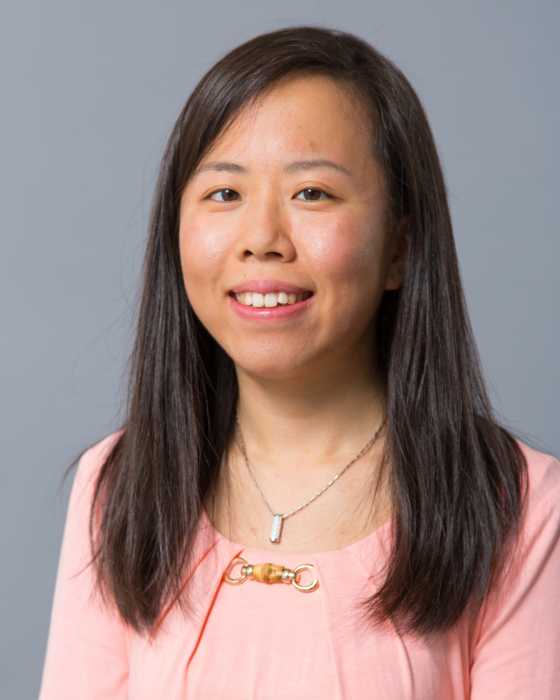
Julia Yang-Winkenbach
Program Officer, Unbound Philanthropy

Julia Yang-Winkenbach is a program officer at Unbound Philanthropy, where she helps develop, implement, and evaluate grantmaking strategies and priorities for the foundation’s U.S. Program. She joined Unbound in 2015, after working in development at Weill Cornell Medicine. Previously, she held civic engagement and fundraising roles with various nonprofits in New York City. Julia is currently a steering committee member of the New York chapter of Asian Americans/Pacific Islanders in Philanthropy. She completed a master’s of science in migration studies at the University of Oxford, and earned a bachelor’s in international studies and political science at the City College of New York – CUNY. Julia is the daughter of immigrants from Taiwan.
If you could give your younger-self advice, what would it be?
Embrace complexity. We are often told to simplify or flatten our stories, when in fact they are complicated, and at times, full of contradictions. As we navigate the multifaceted challenges – from climate change to attacks on our democracy – that our generation faces and will continue to face, it is imperative for us to find ways to connect and identify paths forward collectively.
Do you have any event/movie/music suggestions for our readers to check out in celebration of AAPI Heritage Month?
There are often so many that it is hard to choose – but I have often enjoyed events organized by Think!Chinatown as well as the annual Passport to Taiwan festival.
What can New York policymakers do to support the AAPI-community in the short-term? In the long-term?
Ensure that AAPIs are represented in decision-making and other circles of influence when it comes to policy making across all dimensions. This means understanding the diversity of our communities – cultural, linguistic, religious, and generational – and integrating these complexities into analyses that inform and shape policy change and ultimately influence funding decisions.
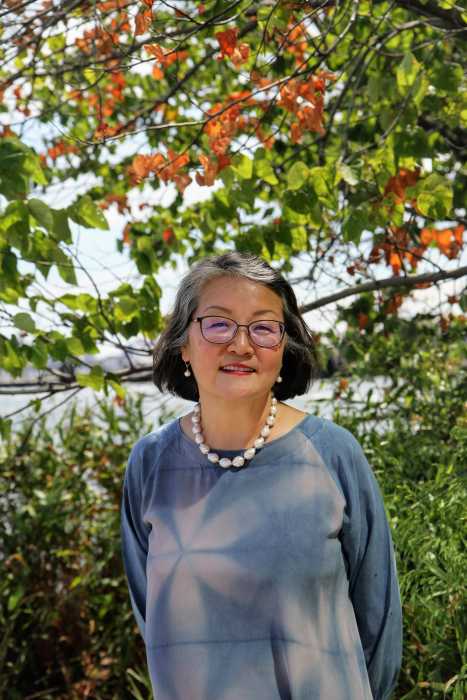
Jo-Ann Yoo
Executive Director, Asian American Federation

Jo-Ann Yoo is the executive director of the Asian American Federation (AAF). AAF is the strongest leadership organization in New York that collaborates with nearly 70 member and partner organizations. Under Jo-Ann’s leadership, AAF has been a leader in combating anti-Asian violence in New York starting in 2020, particularly through the Hope Against Hate campaign, AAF’s signature effort to provide safety to Asian New Yorkers.



